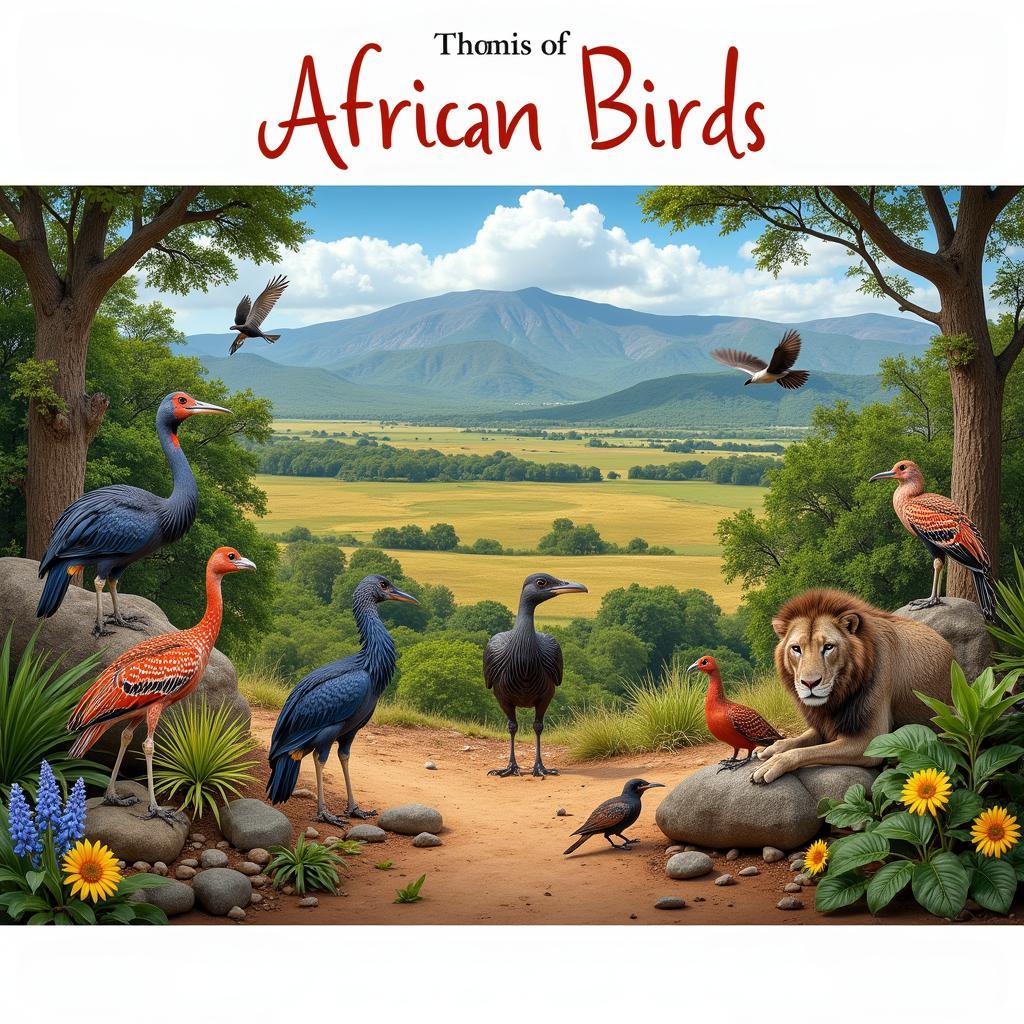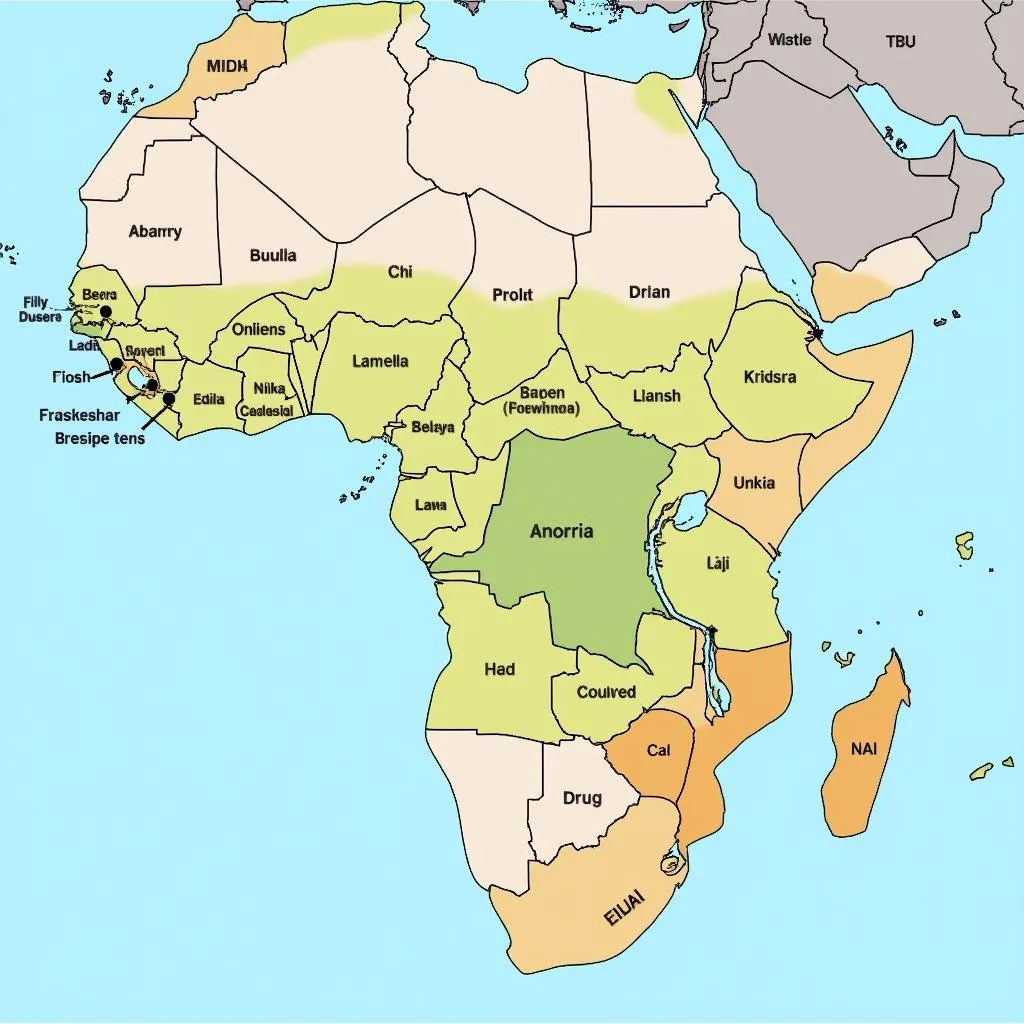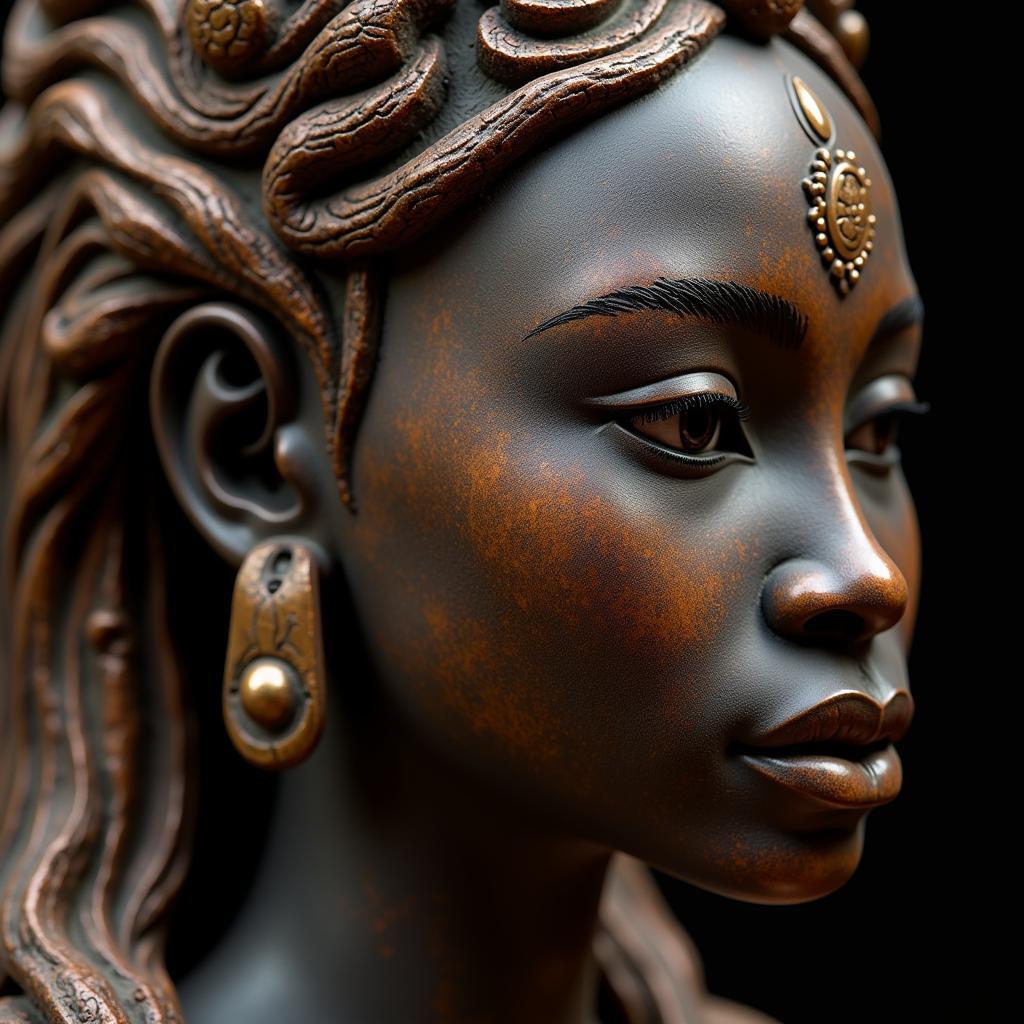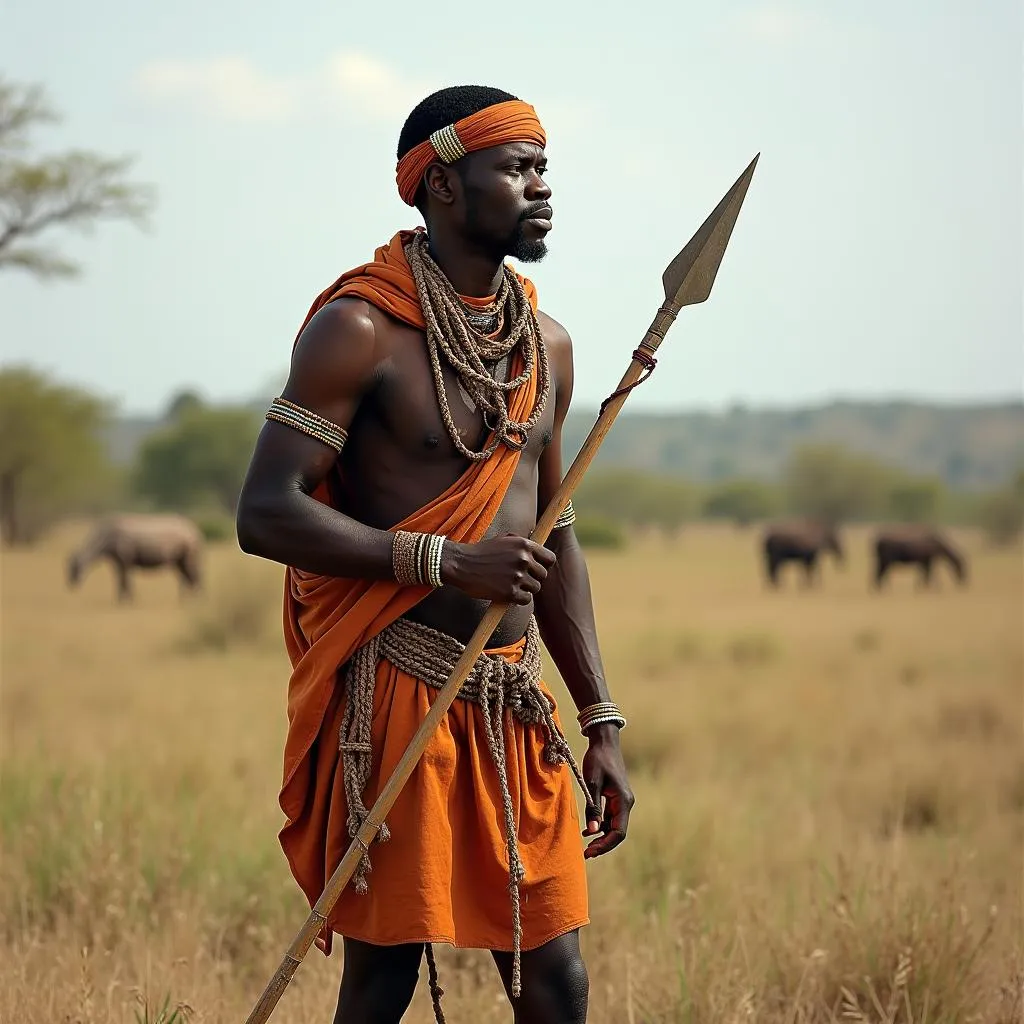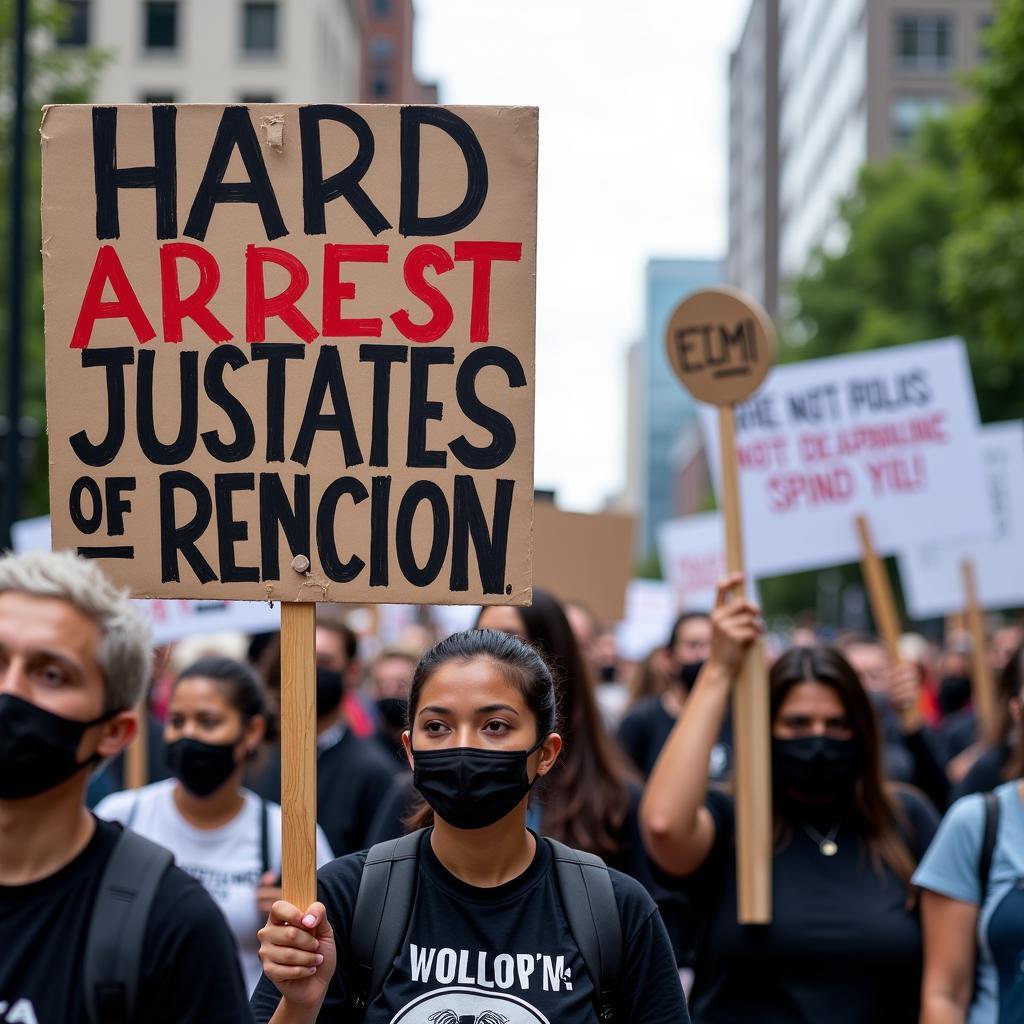Discovering the Richness of African Fair Trade Products
African Fair Trade Products offer a unique opportunity to support sustainable development and empower artisans across the continent. By choosing fair trade, you’re not just buying a product; you’re investing in a better future for African communities. From intricately woven baskets to vibrant textiles and handcrafted jewelry, these products showcase the rich cultural heritage and artistic talent found throughout Africa. Let’s delve into the world of African fair trade and discover the positive impact your purchase can have.
What are African Fair Trade Products?
Fair trade is more than just a label; it’s a movement that promotes ethical and sustainable trading practices. When you buy African fair trade products, you’re ensuring that the artisans who create them receive fair wages, work in safe conditions, and have access to resources that support their communities. This empowers them to invest in their families, education, and healthcare, breaking the cycle of poverty and fostering economic growth. Fair trade also encourages environmentally sound practices, protecting Africa’s natural resources for future generations.
Choosing African fair trade products allows you to connect directly with the creators and their stories. Each piece carries within it the rich cultural heritage of its origin, reflecting the unique traditions, skills, and artistic expressions of the artisan’s community. These products tell a story of resilience, creativity, and hope, making them more than just beautiful objects; they’re tangible representations of positive change. Moreover, buying fair trade ensures you’re supporting businesses committed to transparency and accountability.
You can find a variety of beautiful african beaded edging online, which reflects the continent’s rich artistic traditions.
The Impact of Buying African Fair Trade Products
The impact of choosing African fair trade goods extends far beyond the individual artisan. By supporting fair trade, you’re contributing to the overall well-being of entire communities. Fair trade practices often lead to improved infrastructure, access to clean water, and better educational opportunities. These improvements create a ripple effect, empowering communities to thrive and build a sustainable future. Furthermore, fair trade helps preserve traditional crafts and skills that might otherwise be lost in the face of globalization. By supporting these artisans, you’re playing a role in safeguarding Africa’s rich cultural heritage.
African fair trade supports local economies and empowers communities to thrive. It helps preserve traditional craft techniques passed down through generations, ensuring these artistic legacies continue to flourish. Purchasing these products is an investment in a better future for Africa.
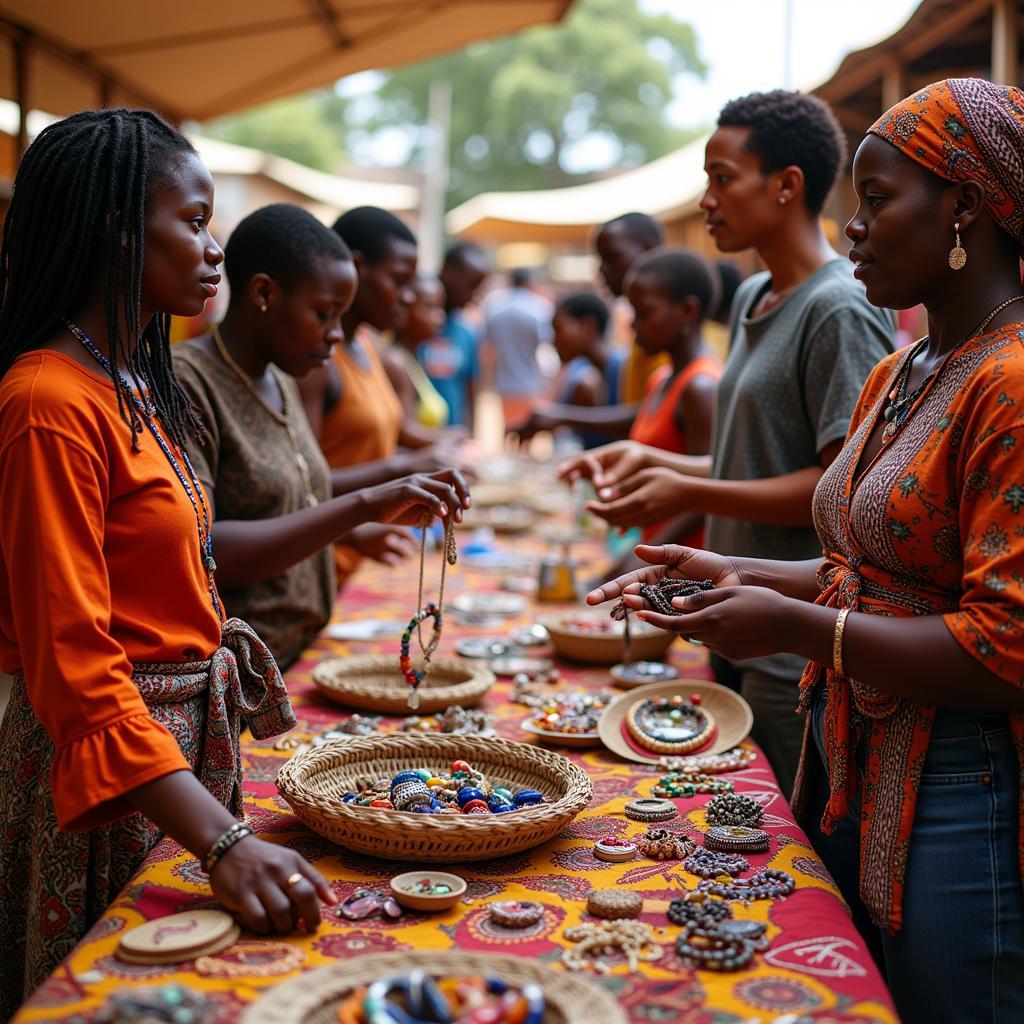 African Fair Trade Market Scene
African Fair Trade Market Scene
Where to Find Authentic African Fair Trade Products
Finding authentic African fair trade products is easier than ever, thanks to the growing number of online marketplaces and dedicated retailers. Look for certifications like Fairtrade International or the World Fair Trade Organization (WFTO) to ensure that the products you’re buying meet rigorous fair trade standards. You can also explore online platforms specializing in African handicrafts, connecting you directly with artisans and their cooperatives. Many brick-and-mortar stores also carry fair trade goods, offering the opportunity to examine the craftsmanship firsthand and engage with knowledgeable staff. When shopping, don’t hesitate to ask about the product’s origin, the artisan’s story, and the impact your purchase will have.
Many online retailers offer a wide variety of african clothing for sale online. This is a great way to support fair trade artisans.
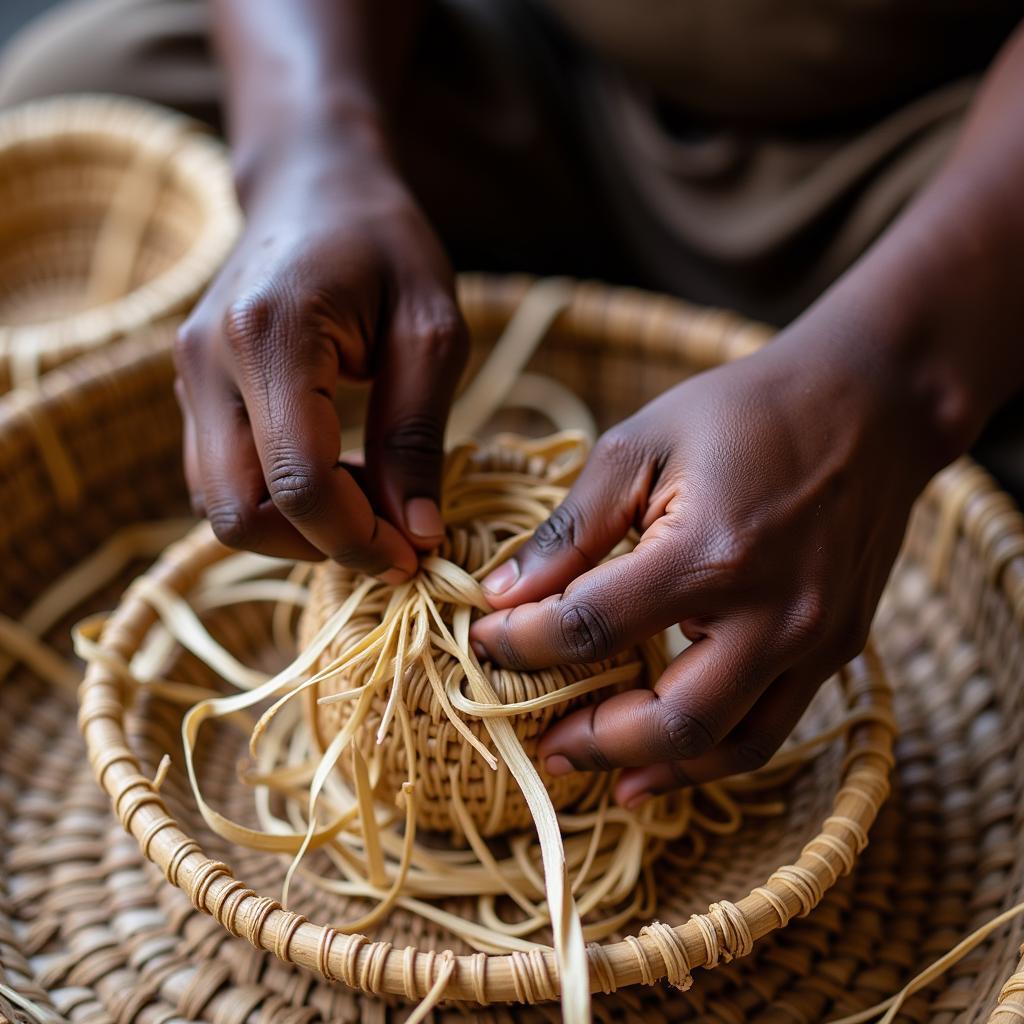 African Artisan Weaving a Basket
African Artisan Weaving a Basket
How to Identify Genuine Fair Trade Products
While many products claim to be fair trade, it’s crucial to be discerning and look for credible certifications. Look for the Fairtrade Mark, a globally recognized symbol that guarantees the product meets internationally recognized fair trade standards. Other reputable certifications include the WFTO label and various regional fair trade organizations. Beyond certifications, look for transparency in the supply chain. Reputable fair trade businesses are open about their sourcing practices and provide information about the artisans and their communities. You can also research the company’s social and environmental impact reports, which offer further insight into their commitment to fair trade principles.
Are you looking for unique and stylish footwear? Check out these african beaded sandals kenya.
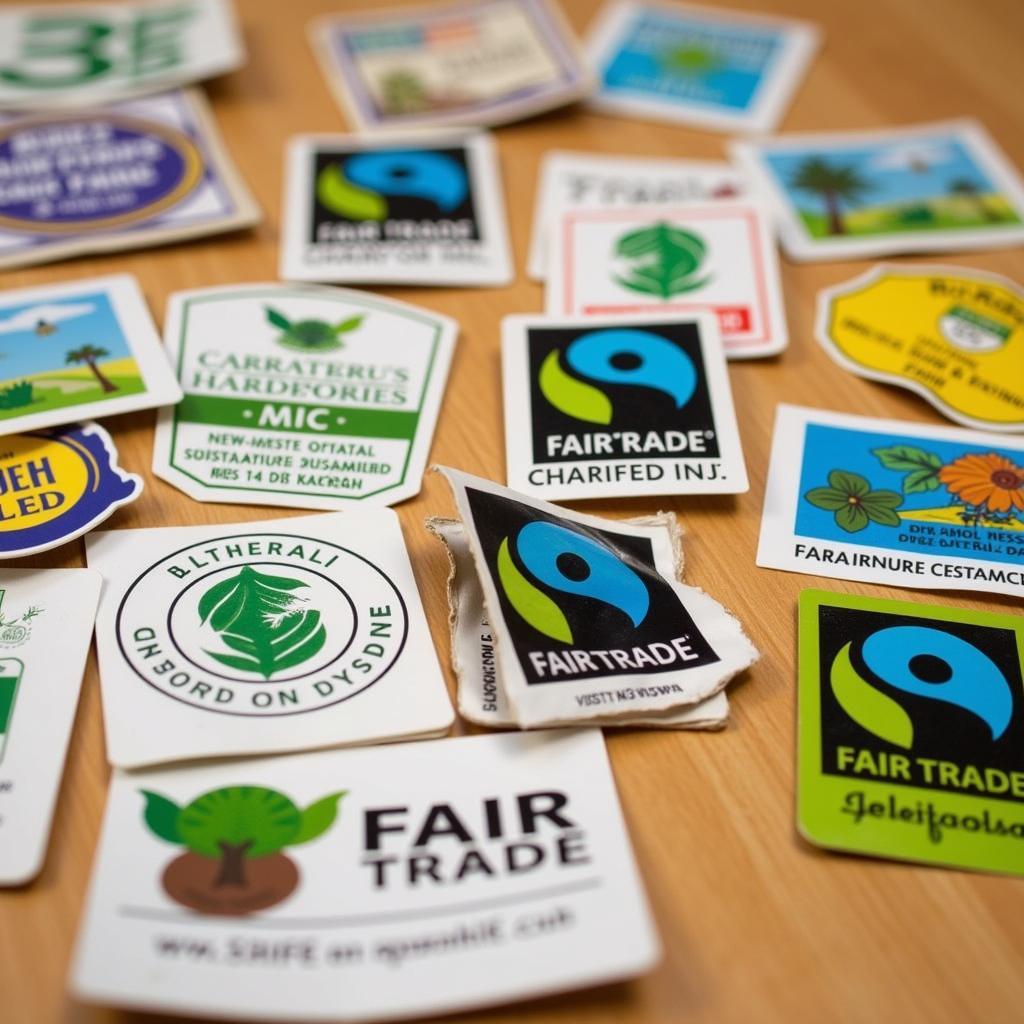 Fair Trade Certification Labels on Products
Fair Trade Certification Labels on Products
Conclusion
African fair trade products offer a powerful way to connect with the continent’s vibrant culture while supporting sustainable development and empowering artisans. By choosing fair trade, you are making a conscious decision to invest in a better future for African communities. From handcrafted jewelry to vibrant textiles and intricate baskets, every purchase tells a story of resilience, creativity, and hope. So, next time you’re looking for a unique and meaningful gift or simply want to add a touch of African artistry to your life, consider choosing African fair trade products and experience the richness they bring.
Dr. Abena Osei, a renowned expert in African economics, shares, “Fair trade is not charity; it’s a partnership that empowers African artisans to become self-sufficient and build sustainable livelihoods.” By choosing fair trade, we are not just buying a product; we are investing in a future where trade is a force for good.
FAQ
-
What does fair trade mean?
Fair trade ensures producers in developing countries receive fair prices for their products, work in safe conditions, and have access to resources that support their communities. -
How can I be sure a product is truly fair trade?
Look for recognized certifications like the Fairtrade Mark or the WFTO label. -
What types of African fair trade products are available?
A wide variety, including textiles, jewelry, coffee, chocolate, home décor, and more. -
Where can I buy African fair trade products?
Online marketplaces, dedicated retailers, and some brick-and-mortar stores. -
What is the impact of buying fair trade?
It empowers artisans, supports communities, preserves traditional crafts, and promotes sustainable development. -
Are African fair trade products expensive?
Prices reflect the true cost of production, ensuring fair wages and sustainable practices. -
How does fair trade contribute to environmental sustainability?
It encourages environmentally friendly farming and production methods.
Other questions we often receive:
- Are there specific regulations for importing African fair trade products?
- How does fair trade impact gender equality in African communities?
- Can I visit the communities where these products are made?
Further reading:
Check out these related articles for more information:
Need support? Contact us 24/7: Phone: +255768904061, Email: kaka.mag@gmail.com or visit us at Mbarali DC Mawindi, Kangaga, Tanzania.

